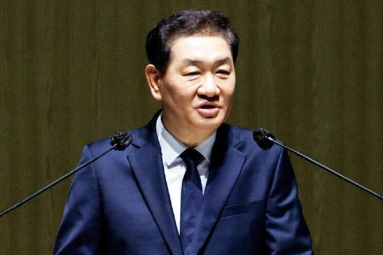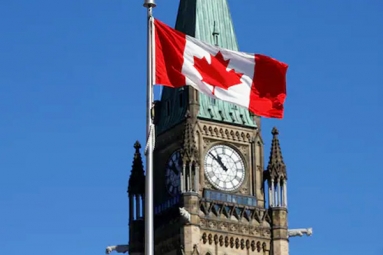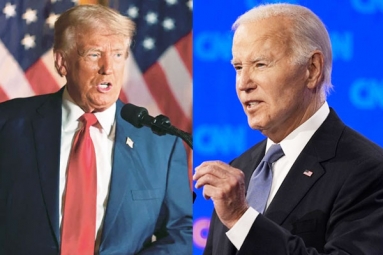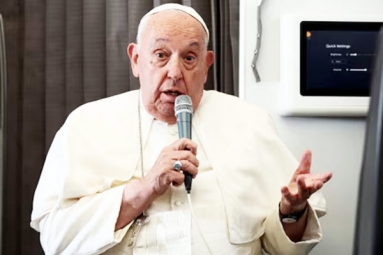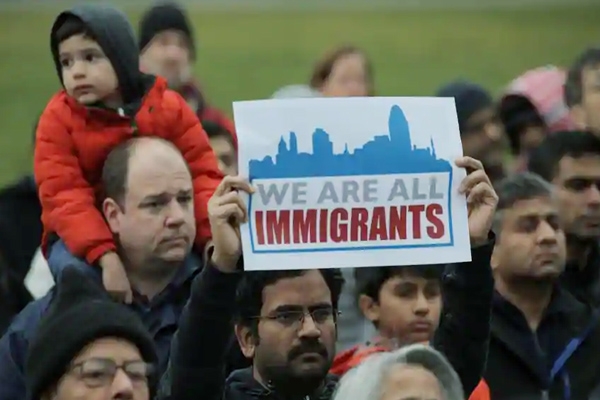
(Image source from: www.hindustantimes.com)
With the United States mid-term elections coming up next week, the fate of the Coffman-Krishnamoorthi bill, which is being closely observed by thousands of Indians who are waiting on long green card queues, hangs in balance.
The 'Immigration Innovation Act of 2018' was introduced in September by Representatives Mike Coffman, a Republican Congressman from Colorado, and Raja Krishnamoorthi, a Democrat from Illinois.
Currently, all the 435 seats of the U.S. House of Representatives are up for elections taking place on November 6. Though once the U.S. Congress adjourns after elections, all bills in the Senate and House which have not gone through the legislative procedure will have to be reintroduced; the chances of that are high if the bill's sponsors - or, at least one of them - is re-elected.
Related Content: Mid-term Elections: What Indian-American Community has at Stake
Krishnamoorthi is pitched against fellow Republic nominee and fellow Jitendra Diganvker.
According to the organization Skilled Immigrants in America, there are more than 1.5 million Indians on H-1B high-skill work visas waiting in the U.S. on green card queues, with an average wait time of anything between 15 years to a few decades.
The CK bill marks this issue and proposes to enable reassignment of unused visas from former years, exempt spouses and children of employment-based green card holders from caps, and create new condition green card categories to let the U.S. employers to sponsor university-educated foreign professionals via separate way from H-1B, which will help reduce prolonged wait times for green cards. The bill would as well set up a grace period to allow H-1B visa holders to change jobs without their losing legal status to permit mobility.
"The important issue of employment authorization document for H4 dependent visa holders, whose H-1B spouses have a pending or approved labor certification or 'immigrant petition' has been addressed by the bill," said New York-based immigration attorney Cyrus Mehta.
The bill also allows an H-1B worker to switch to a new job site where there is a valid Labour Condition Application (LCA), without amending the original petition.
One of the reasons for the Coffman-Krishnamoorthi (CK) bill being seen to have a greater chance for success than any other immigration bills is that Krishnamoorthi recently got bipartisan legislation on worker training and education passed and signed by President Donald Trump.
"The CK bill also shifts the green card volume by creating direct application routes for university graduates and shifting spousal options. This will probably reduce the backlog," said Nish Acharya, Chief Executive Officer at Equal Innovation, a consultancy that advises companies and governments.
The work authorization for spouses and dependent children of H-1B visa holders, and a grace period permitting Indians to change jobs without losing status ate two big takeaways from the CK bill for Indians waiting for long on green card queues.
An earlier bill in the U.S. Senate by Republican senators Orrin Hatch and Jeff Flake, too, had addressed some of these issues, including increasing the H-1B statutory cap, authorizing employment for married persons of H-1B visa holders, increasing H-1B worker mobility, recapturing green card numbers that were approved by Congress in earlier years but not used, eliminating per-country limits for employment-based green cards, and allowing dual intent for student visa holders.
"If the two bills are reintroduced after the US elections, both houses could work together to iron out differences and then put it to vote," said Poorvi Chothani, a Mumbai-based immigration lawyer. "When the House and Senate pass slightly different versions of a bill, they could appoint conferees to work out a compromise."
For now, most Indians in the U.S. are looking at the elections following week and in particular at Representatives Krishnamoorthi and Coffman.
-Sowmya Sangam



